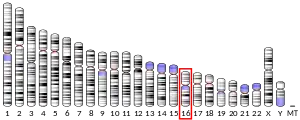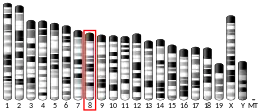| COX4I1 | |||||||||||||||||||||||||||||||||||||||||||||||||||
|---|---|---|---|---|---|---|---|---|---|---|---|---|---|---|---|---|---|---|---|---|---|---|---|---|---|---|---|---|---|---|---|---|---|---|---|---|---|---|---|---|---|---|---|---|---|---|---|---|---|---|---|
| Identifiers | |||||||||||||||||||||||||||||||||||||||||||||||||||
| Aliases | COX4I1, COX4, COX4-1, COXIV, COX IV-1, COXIV-1, cytochrome c oxidase subunit 4I1, MC4DN16 | ||||||||||||||||||||||||||||||||||||||||||||||||||
| External IDs | OMIM: 123864 MGI: 88473 HomoloGene: 37537 GeneCards: COX4I1 | ||||||||||||||||||||||||||||||||||||||||||||||||||
| |||||||||||||||||||||||||||||||||||||||||||||||||||
| |||||||||||||||||||||||||||||||||||||||||||||||||||
| |||||||||||||||||||||||||||||||||||||||||||||||||||
| |||||||||||||||||||||||||||||||||||||||||||||||||||
| |||||||||||||||||||||||||||||||||||||||||||||||||||
| Wikidata | |||||||||||||||||||||||||||||||||||||||||||||||||||
| |||||||||||||||||||||||||||||||||||||||||||||||||||
Cytochrome c oxidase subunit 4 isoform 1, mitochondrial (COX4I1) is an enzyme that in humans is encoded by the COX4I1 gene. COX4I1 is a nuclear-encoded isoform of cytochrome c oxidase (COX) subunit 4. Cytochrome c oxidase (complex IV) is a multi-subunit enzyme complex that couples the transfer of electrons from cytochrome c to molecular oxygen and contributes to a proton electrochemical gradient across the inner mitochondrial membrane, acting as the terminal enzyme of the mitochondrial respiratory chain.[5][6][7] Antibodies against COX4 can be used to identify the inner membrane of mitochondria in immunofluorescence studies.[8] Mutations in COX4I1 have been associated with COX deficiency and Fanconi anemia.[9][10]
Structure
COX4I1 is located on the q arm of chromosome 16 in position 24.1 and has 6 exons.[5] The COX4I1 gene produces a 9.3 kDa protein composed of 83 amino acids.[11][12] COX4I1 is expressed ubiquitously. The protein encoded by COX4I1 belongs to the cytochrome c oxidase IV family. COX4I1 has a transit peptide domain and acetyl and phosphoprotein amino acid modifications.[13][14] It is located at the 3' of the NOC4 (neighbor of COX4) gene in a head-to-head orientation and shares a promoter with it.[5]
Function
COX4I1 encodes a protein that is located in the inner mitochondrial membrane and is an isoform of the nuclear-encoded subunit IV of cytochrome c oxidase (complex IV), the terminal oxidase in mitochondrial electron transport. Complex IV is a multi-subunit enzyme complex that couples the transfer of electrons from cytochrome c to molecular oxygen and contributes to a proton electrochemical gradient across the inner mitochondrial membrane.[5] The expression of COX4I1, along with COX4I2, may be regulated by oxygen levels, with reduced levels of oxygen leading to increased COX4I2 expression and COX4I1 degradation. This suggests a role for COX4I1 in the optimization of the electron transfer chain under different conditions.[15]
Clinical Significance
Although relatively little is known about the function of COX4I1, mutations in this gene have been associated with mitochondrial complex IV diseases with severe phenotypes. Among these, COX deficiency and Fanconi anemia have been suspected and linked to mutations in the COX4I1 gene. Clinical features of pathogenic variants of COX4I1 can include short stature, poor weight gain, mild dysmorphic features, mental retardation, spastic paraplegia, severe epilepsy, a narrow and arched palate, malar hypoplasia, little subcutaneous fat, and arachnodactyly. The homozygous mutation K101N and a de novo 16q24.1 interstitial duplication have been found to cause defective COX4I1.[9][10]
Interactions
COX4I1 has 153 protein-protein interactions with 142 of them being co-complex interactions. COX4I1 has been found to interact with SDCBP, MT-CO1, IKBKE, TMBIM4, and MCL1.[16]
LON, a mitochondrial protease, has also been suggested to regulate the COX4 subunit isoforms by degrading COX4I1 under hypoxic conditions.[15]
References
- 1 2 3 GRCh38: Ensembl release 89: ENSG00000131143 - Ensembl, May 2017
- 1 2 3 GRCm38: Ensembl release 89: ENSMUSG00000031818 - Ensembl, May 2017
- ↑ "Human PubMed Reference:". National Center for Biotechnology Information, U.S. National Library of Medicine.
- ↑ "Mouse PubMed Reference:". National Center for Biotechnology Information, U.S. National Library of Medicine.
- 1 2 3 4 "Entrez Gene: COX4I1 cytochrome c oxidase subunit IV isoform 1".
 This article incorporates text from this source, which is in the public domain.
This article incorporates text from this source, which is in the public domain. - ↑ Zeviani M, Nakagawa M, Herbert J, Lomax MI, Grossman LI, Sherbany AA, Miranda AF, DiMauro S, Schon EA (Dec 1987). "Isolation of a cDNA clone encoding subunit IV of human cytochrome c oxidase". Gene. 55 (2–3): 205–17. doi:10.1016/0378-1119(87)90281-2. PMID 2444497.
- ↑ Lomax MI, Welch MD, Darras BT, Francke U, Grossman LI (February 1990). "Novel use of a chimpanzee pseudogene for chromosomal mapping of human cytochrome c oxidase subunit IV". Gene. 86 (2): 209–16. doi:10.1016/0378-1119(90)90281-U. PMID 2157630.
- ↑ "Anti-COX4 antibody (GTX101499) | GeneTex".
- 1 2 Abu-Libdeh B, Douiev L, Amro S, Shahrour M, Ta-Shma A, Miller C, Elpeleg O, Saada A (October 2017). "Mutation in the COX4I1 gene is associated with short stature, poor weight gain and increased chromosomal breaks, simulating Fanconi anemia". European Journal of Human Genetics. 25 (10): 1142–1146. doi:10.1038/ejhg.2017.112. PMC 5602013. PMID 28766551.
- 1 2 Quéméner-Redon S, Bénech C, Audebert-Bellanger S, Friocourt G, Planes M, Parent P, Férec C (April 2013). "A small de novo 16q24.1 duplication in a woman with severe clinical features" (PDF). European Journal of Medical Genetics. 56 (4): 211–5. doi:10.1016/j.ejmg.2013.01.001. PMID 23333879.
- ↑ Yao, Daniel. "Cardiac Organellar Protein Atlas Knowledgebase (COPaKB) —— Protein Information". amino.heartproteome.org. Archived from the original on 2018-08-04. Retrieved 2018-08-03.
- ↑ Zong NC, Li H, Li H, Lam MP, Jimenez RC, Kim CS, Deng N, Kim AK, Choi JH, Zelaya I, Liem D, Meyer D, Odeberg J, Fang C, Lu HJ, Xu T, Weiss J, Duan H, Uhlen M, Yates JR, Apweiler R, Ge J, Hermjakob H, Ping P (October 2013). "Integration of cardiac proteome biology and medicine by a specialized knowledgebase". Circulation Research. 113 (9): 1043–53. doi:10.1161/CIRCRESAHA.113.301151. PMC 4076475. PMID 23965338.
- ↑ "COX4I1 - Cytochrome c oxidase subunit 4 isoform 1, mitochondrial precursor - Homo sapiens (Human) - COX4I1 gene & protein". uniprot.org. Retrieved 2018-08-03.
 This article incorporates text available under the CC BY 4.0 license.
This article incorporates text available under the CC BY 4.0 license. - ↑ "UniProt: the universal protein knowledgebase". Nucleic Acids Research. 45 (D1): D158–D169. January 2017. doi:10.1093/nar/gkw1099. PMC 5210571. PMID 27899622.
- 1 2 Fukuda R, Zhang H, Kim JW, Shimoda L, Dang CV, Semenza GL (April 2007). "HIF-1 regulates cytochrome oxidase subunits to optimize efficiency of respiration in hypoxic cells". Cell. 129 (1): 111–22. doi:10.1016/j.cell.2007.01.047. PMID 17418790. S2CID 2331820.
- ↑ "153 binary interactions found for search term COX4I1". IntAct Molecular Interaction Database. EMBL-EBI. Retrieved 2018-08-25.
External links
- Human COX4I1 genome location and COX4I1 gene details page in the UCSC Genome Browser.
Further reading
- Kim MJ, Jardel C, Barthélémy C, Jan V, Bastard JP, Fillaut-Chapin S, Houry S, Capeau J, Lombès A (May 2008). "Mitochondrial DNA content, an inaccurate biomarker of mitochondrial alteration in human immunodeficiency virus-related lipodystrophy". Antimicrobial Agents and Chemotherapy. 52 (5): 1670–6. doi:10.1128/AAC.01449-07. PMC 2346614. PMID 18332166.
- Lithgow T (June 2000). "Targeting of proteins to mitochondria". FEBS Letters. 476 (1–2): 22–6. doi:10.1016/S0014-5793(00)01663-X. PMID 10878243. S2CID 19509367.
- Van Kuilenburg AB, Van Beeumen JJ, Demol H, Van den Bogert C, Schouten I, Muijsers AO (February 1992). "Subunit IV of human cytochrome c oxidase, polymorphism and a putative isoform". Biochimica et Biophysica Acta (BBA) - Protein Structure and Molecular Enzymology. 1119 (2): 218–24. doi:10.1016/0167-4838(92)90395-T. PMID 1311608.
- Romero N, Marsac C, Fardeau M, Droste M, Schneyder B, Kadenbach B (1990). "Immunohistochemical demonstration of fibre type-specific isozymes of cytochrome c oxidase in human skeletal muscle". Histochemistry. 94 (2): 211–5. doi:10.1007/BF02440190. PMID 2162812. S2CID 33365867.
- Bonne G, Seibel P, Possekel S, Marsac C, Kadenbach B (November 1993). "Expression of human cytochrome c oxidase subunits during fetal development". European Journal of Biochemistry. 217 (3): 1099–107. doi:10.1111/j.1432-1033.1993.tb18342.x. PMID 8223633.
- Andersson B, Wentland MA, Ricafrente JY, Liu W, Gibbs RA (April 1996). "A "double adaptor" method for improved shotgun library construction". Analytical Biochemistry. 236 (1): 107–13. doi:10.1006/abio.1996.0138. PMID 8619474.
- Wu W, Goodman M, Lomax MI, Grossman LI (May 1997). "Molecular evolution of cytochrome c oxidase subunit IV: evidence for positive selection in simian primates" (PDF). Journal of Molecular Evolution. 44 (5): 477–91. Bibcode:1997JMolE..44..477W. doi:10.1007/PL00006172. hdl:2027.42/42366. PMID 9115172. S2CID 13602126.
- Bachman NJ, Wu W, Schmidt TR, Grossman LI, Lomax MI (May 1999). "The 5' region of the COX4 gene contains a novel overlapping gene, NOC4". Mammalian Genome. 10 (5): 506–12. doi:10.1007/s003359901031. hdl:2027.42/42117. PMID 10337626. S2CID 8776340.
- Hüttemann M, Kadenbach B, Grossman LI (April 2001). "Mammalian subunit IV isoforms of cytochrome c oxidase". Gene. 267 (1): 111–23. doi:10.1016/S0378-1119(01)00385-7. PMID 11311561.
- Williams SL, Valnot I, Rustin P, Taanman JW (February 2004). "Cytochrome c oxidase subassemblies in fibroblast cultures from patients carrying mutations in COX10, SCO1, or SURF1". The Journal of Biological Chemistry. 279 (9): 7462–9. doi:10.1074/jbc.M309232200. PMID 14607829.
This article incorporates text from the United States National Library of Medicine, which is in the public domain.




